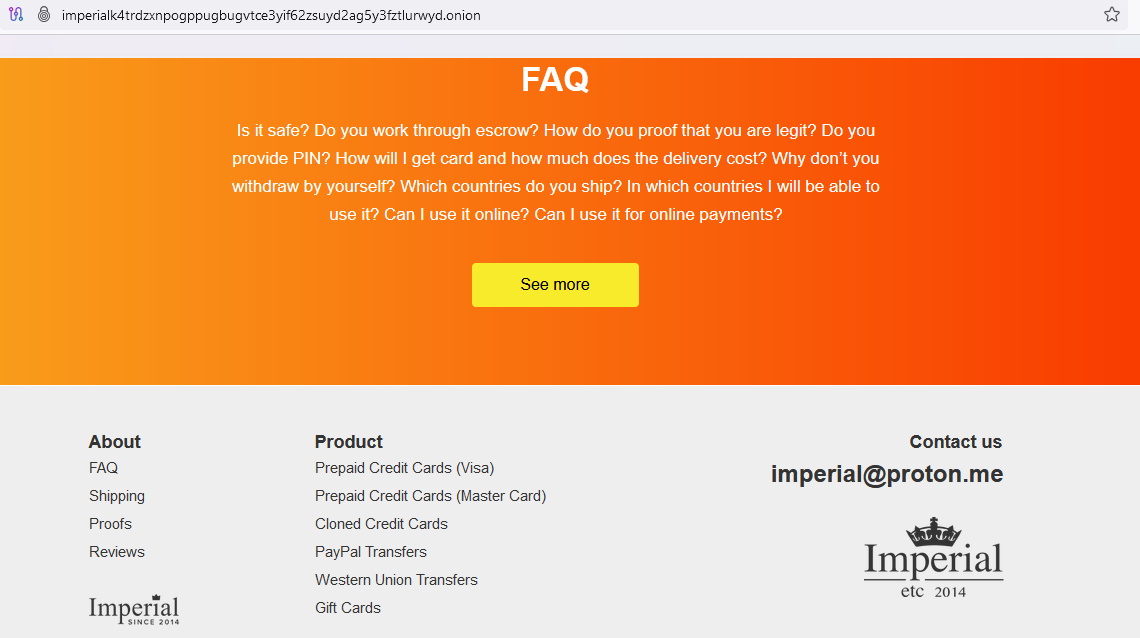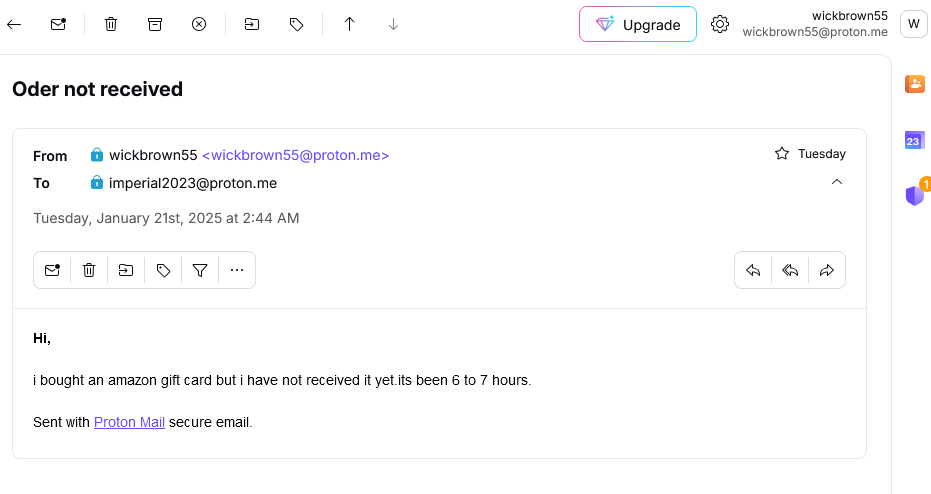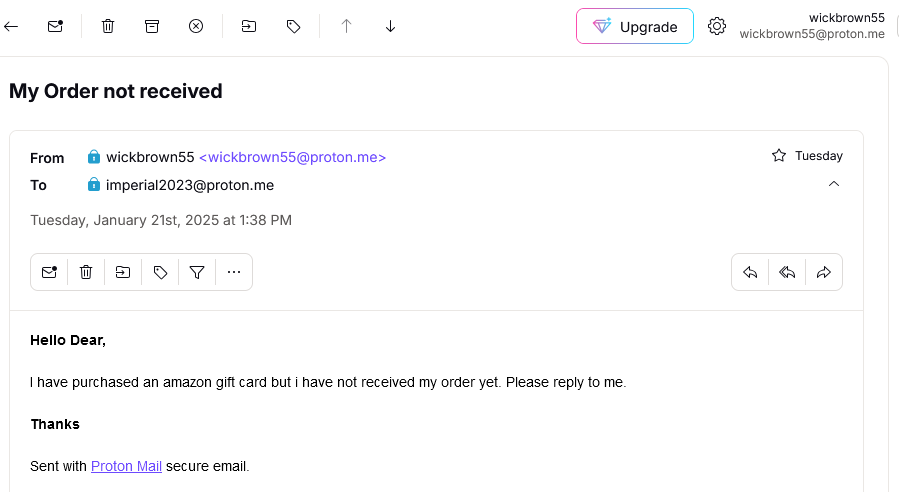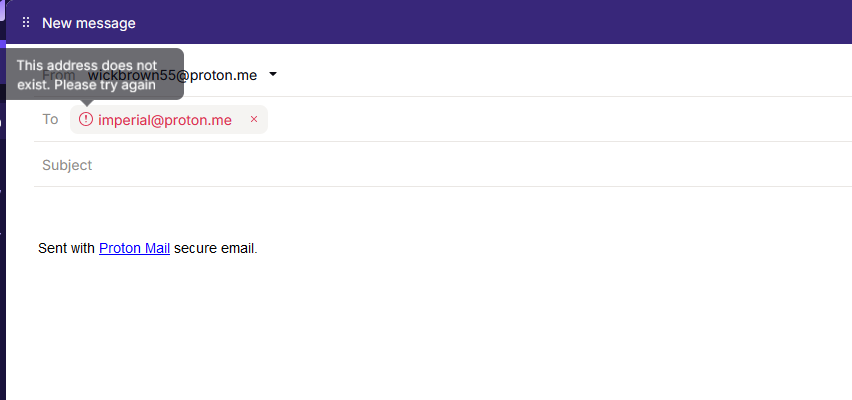Table of Contents
ToggleImperial Market – TOR Scam Report (135)
Onion Link : http://imperialk4trdzxnpogppugbugvtce3yif62zsuyd2ag5y3fztlurwyd.onion
Scam Report Date : 2025-01-25
Client Scam Report Breakdown
Original Scam Report :
The client reported being scammed after purchasing an Amazon gift card from a website that failed to deliver the product. Despite completing the payment process, the client did not receive the gift card via email, as promised by the vendor. The report further notes that advertisements for this website were displayed on popular darknet search engines, Tor66 and Torch, adding to the site’s visibility among potential buyers. The client has requested that the website be flagged as fraudulent to protect others from falling victim to the same scam. This account reflects a classic example of a darknet scam targeting unsuspecting users seeking discounted goods.
Photos :




Terminology and Definitions
- Amazon Gift Card: A prepaid card used for purchasing items on Amazon’s platform. Gift cards are popular targets for scammers due to their demand, ease of digital transfer, and the inability to reverse transactions once completed. Fraudsters often advertise these cards at significantly reduced prices to lure buyers into transactions that are never fulfilled.
- Tor66 and Torch: Darknet search engines used to index websites and marketplaces within the Tor network. These platforms are frequently exploited by scammers to advertise fraudulent websites, taking advantage of the anonymity provided by the dark web to avoid detection and accountability.
- Scam List: A publicly available compilation of websites or entities reported for fraudulent activities. Such lists serve as a resource for potential buyers to verify the credibility of platforms before engaging in transactions. The client’s request to add this website to a scam list underscores the importance of warning others about fraudulent operations.
Analysis and Recommendations
The client’s report illustrates several red flags characteristic of online scams. First, the failure to deliver a purchased product—combined with a lack of direct customer support—strongly indicates fraudulent intent. Second, the promotion of this website on darknet search engines like Tor66 and Torch suggests that it relies on anonymity and the lack of regulation on these platforms to operate with impunity. Finally, the absence of any attempt to address the client’s concerns reflects a deliberate strategy to exploit buyers without providing legitimate goods or services.
To address and mitigate risks associated with such scams, the following measures are recommended:
- Raise Awareness About Darknet Scams: Educational campaigns should focus on informing users about the risks of purchasing items from darknet marketplaces or platforms advertising on Tor search engines. Emphasizing the prevalence of scams and the lack of recourse for victims can deter individuals from engaging with these sites.
- Verify Websites Before Transactions: Buyers should rely on trusted resources, such as scam lists or user reviews, to vet websites before making purchases. If a platform lacks reviews or has reports of non-delivery, it should be avoided.
- Report Fraudulent Websites: The client’s suggestion to add this website to a scam list is a proactive step toward preventing future scams. Reporting such platforms to cybersecurity organizations and relevant authorities can also aid in investigations and potentially lead to the takedown of fraudulent sites.
In conclusion, this case underscores the importance of vigilance when navigating online marketplaces, particularly those operating on the darknet. The combination of anonymity, discounted goods, and unregulated platforms creates an environment ripe for exploitation. By educating users, verifying platforms, and reporting scams, individuals and organizations can collectively reduce the prevalence of such fraudulent activities and protect potential victims.







